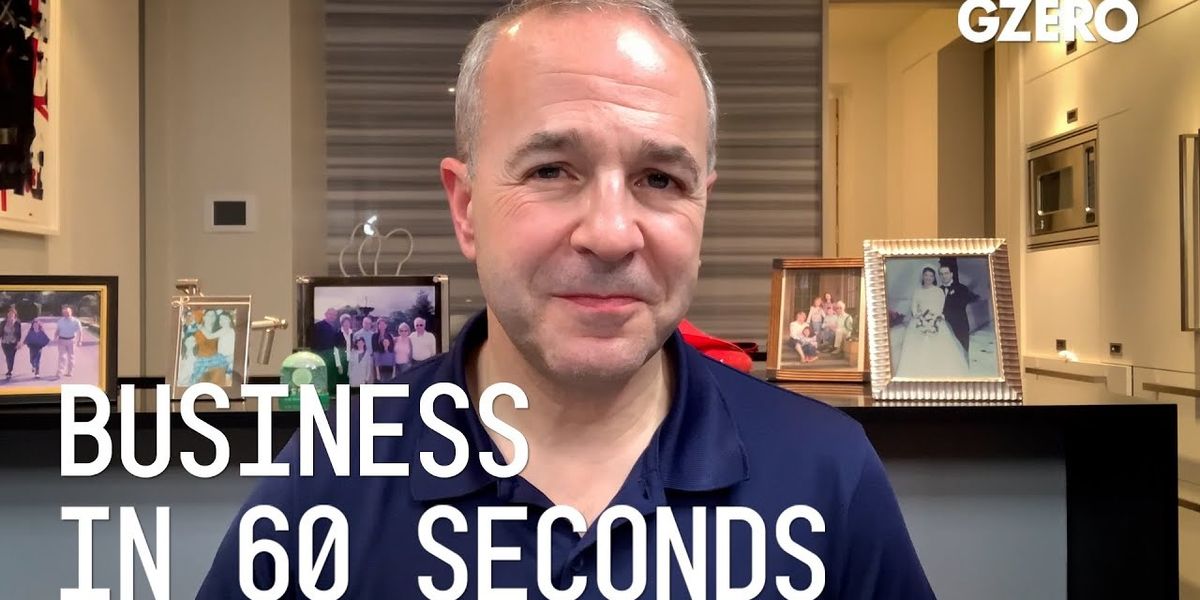Trending Now
We have updated our Privacy Policy and Terms of Use for Eurasia Group and its affiliates, including GZERO Media, to clarify the types of data we collect, how we collect it, how we use data and with whom we share data. By using our website you consent to our Terms and Conditions and Privacy Policy, including the transfer of your personal data to the United States from your country of residence, and our use of cookies described in our Cookie Policy.
{{ subpage.title }}
A ship passes through the Panama Canal's Culebra Cut, heading northbound for the Caribbean, Dec 30. The Canal, built and operated by the United States, will transfer to Panamanian control at a noon ceremony on December 31.
Trump talks of taking the Panama Canal - and jokes about Elon Musk
The President-elect is also making waves for saying that the United States must"retake" control of the Panama Canal. At a rally in Arizona on Sunday, Trump claimed that the canal's 1999 handover to Panama under the terms of an agreement signed by President Jimmy Carter was a "terrible mistake" and argued that the US must act to stop being“ripped off” by Panama and thwart the influence of China in the region.
The Panama Canal, built and managed by the US for decades, handles 2.5% of global ocean traffic, facilitating US imports from Asia and exports of key commodities including LNG.
At the same rally, Trump addressed chatter about Elon Muskusurping the US presidency. Last week, Musk had unsuccessfully attempted to sway Republican members of Congress to oppose US President Joe Biden’s latest spending bill, prompting fears of a government shutdown and accusations that Musk was acting like the President instead of an unelected advisor.
On Sunday, Trump joked that the South African native “is not going to be president. That I can tell you. I’m safe. You know why? He can’t be. He wasn’t born in this country.”
Shaar Liva Hebrew school and synagogue are operating in Toronto, Ontario, Canada, on August 17, 2024
HARD NUMBERS: Jewish orgs get mass threat, Canada’s inflation keeps falling, Harris’ fundraising dwarfs Trump’s, US jobs numbers revised downward
100: More than 100 Jewish institutions across Canada received an identical bomb threat early Wednesday. The email warned of explosions at synagogues, community centers, and hospitals in Toronto, Ottawa, and Montreal. Authorities are investigating but said the risk was “low.” A recent poll showed a quarter of Canadians consider antisemitism a “serious problem.” Last year, attacks on Jews accounted for 70% of all hate crimes in Canada.
40: Annual inflation in Canada fell to its lowest level in about 40 months in July, as prices grew just 2.5%, down from 2.7% a month earlier. The good news is this gives the Bank of Canada room to continue cutting interest rates at its next rate-setting meeting in September. Markets now expect the regulator to slash rates by another 25 basis points, bringing the benchmark to 3.75%.
4: Good vibes make money, money makes good vibes. Kamala Harris’ main campaign fundraising group brought in four times as much money as her opponent Donald Trump’s in July, raising $204 million to the GOP nominee’s $48 million. The vice president also spent three times more than her rival that month as she looked to get herself on a firm footing after President Joe Biden’s withdrawal from the race.
818,000: The US economy created 818,000 fewer jobs than initially reported in the first quarter of this year, according to a regularly scheduled revision of figures released on Wednesday. If this number holds through the next review of these numbers (in February), it would be the largest downward correction for a quarterly jobs number in 15 years. But look for the Trump campaign to hammer Kamala Harris and the White House over this news well before then…2021 opportunities & threats: inequality, mental health, environment
Kevin Sneader, Global Managing Partner at McKinsey & Company, provides perspective on what corporate business leaders are thinking during the global coronavirus crisis:
What are the opportunities and threats on the horizon for 2021?
Now, given the pandemic is still raging, it's hard to narrow the threats and opportunities down, but here are three threats and three opportunities. One, a growing likelihood of increased inequality on several fronts. Gender, since a quarter of women in work we recently did with LeanIn.org were either contemplating leaving or taking time out of the workforce. This reached 40% for those with young children. Race, since Black Americans have seen their jobs disappear at a far greater rate than their white counterparts. And income, since COVID deaths are 4 to 5 times higher among the unemployed and are concentrated in jobs that have been hardest hit. The second threat, mental health. The signs are increasing that this is the other side of the health threat that the virus poses. And three, the environment. They need to ensure a green rather than brown recovery at a time when money is tight.
On the opportunities, first off, flexibility in working through remote and other forms of working that are now happening. Secondly, innovation; we've seen more startups this year being started than in any year before. And lastly, the environment; for all that I said there is a risk of a brown recovery, policy makers and businesses alike in much of the world assuring they're prepared to invest behind the business case for a green recovery.
